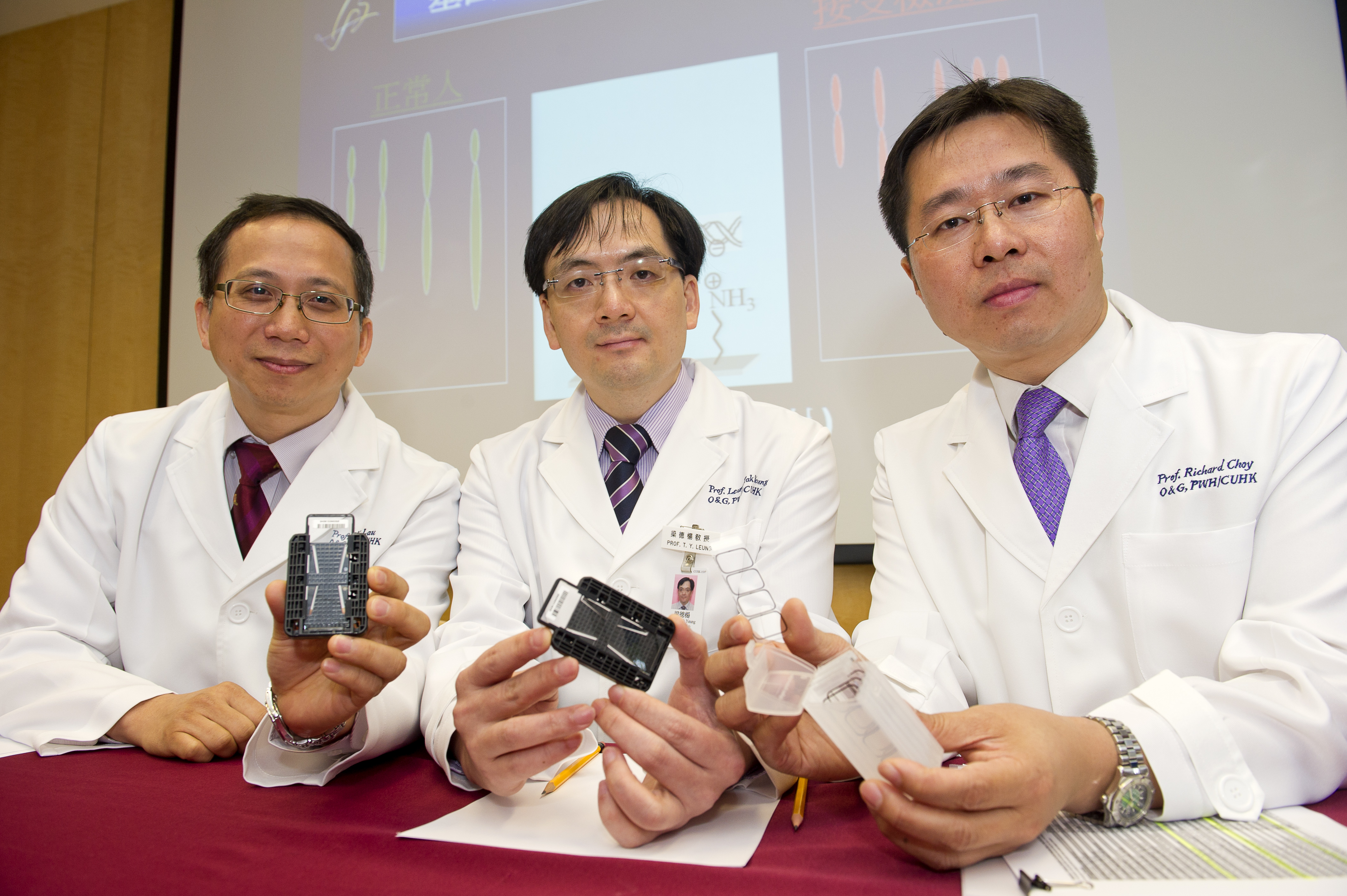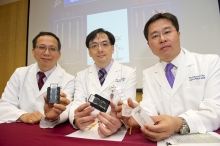CUHK
News Centre
CUHK Pioneers DNA Chip for Prenatal Diagnosis in HK
The Department of Obstetrics and Gynaecology at The Chinese University of Hong Kong (CUHK) is one of the leaders for first trimester screening for Down syndrome in Hong Kong. Since the introduction of ultrasound nuchal translucency (NT) measurement in the OSCAR (One-Stop Clinic for Assessment of Risk) clinic, the Department has been servicing a substantially increasing demand for first trimester screening. Since July 2010, the Hospital Authority has started to offer this screening test to all Hong Kong pregnant women free of charge.
Increased NT during first trimester is a recognized sensitive marker for Down syndrome, but requires further confirmation by which fetal karyotyping is highly recommended. About two-third of these fetuses would have a normal karyotype result, yet at least 10% of them would have structural abnormalities or neurodevelopmental delay, which is known to be associated with a wide array of syndromic disorders and genetic diseases. Previously, making a specific diagnosis of these syndromicand genetic diseases prenatally is difficult, as many of them are linked to submicroscopic chromosomal abnormalities that are undetectable by conventional karyotyping. Over 100 diseases have been reported to be associated with an increased NT, thus a better and more comprehensive technique is of essence in order to diagnose or exclude these syndromic and genetic diseases prenatally.
Microarray based comparative genomic hybridization (array CGH, also DNA chip) can detect chromosomal aberrations invisible by light microscopy karyotyping analysis. The Department of Obstetrics and Gynaecology at CUHK is the ever-first to introduce the DNA chip in prenatal diagnosis in 2009 in Hong Kong and the Asia Pacific region. Fetal DNA chipis a specially designed diagnostic chip with a high resolution to detect common micro-deletion and microduplication syndromes, which would not be detected by conventional karyotyping analysis.
Over the past 6 months, researchers led by Professor Tak Yeung LEUNG and Professor Richard Kwong Wai CHOY at CUHK analyzed the results of DNA chip and karyotyping to investigate the presence of submicroscopic chromosomal aberration in a cohort of fetuses that had increased NT and normal karyotype. It was demonstrated for the first time that a significant portion of fetuses with high NT (4/48; 8.3%) carried submicroscopic chromosomal aberration considered to be fatal or associated with severe congenital abnormalities that could not be detected by karyotype analysis. This additional information is extremely valuable to parents during their decision making process for future pregnancies.
In conclusion, CUHK has successfully introduced a new technique — DNA chip for prenatal diagnosis. DNA chip enhances the sensitivity and accuracy of diagnosing lethal and severe congenital disorders like Mowat Wilson syndrome through a precise and delicate measurement of DNA copy number changes in human genome. It has helped to realize successful prenatal diagnosis of many rare but clinically significant submicroscopic chromosomal abnormalities, giving more comprehensive, higher resolution and earlier results than conventional karyotype analysis. This research finding has been published in the international journal Ultrasound Obstet Gynecol.





